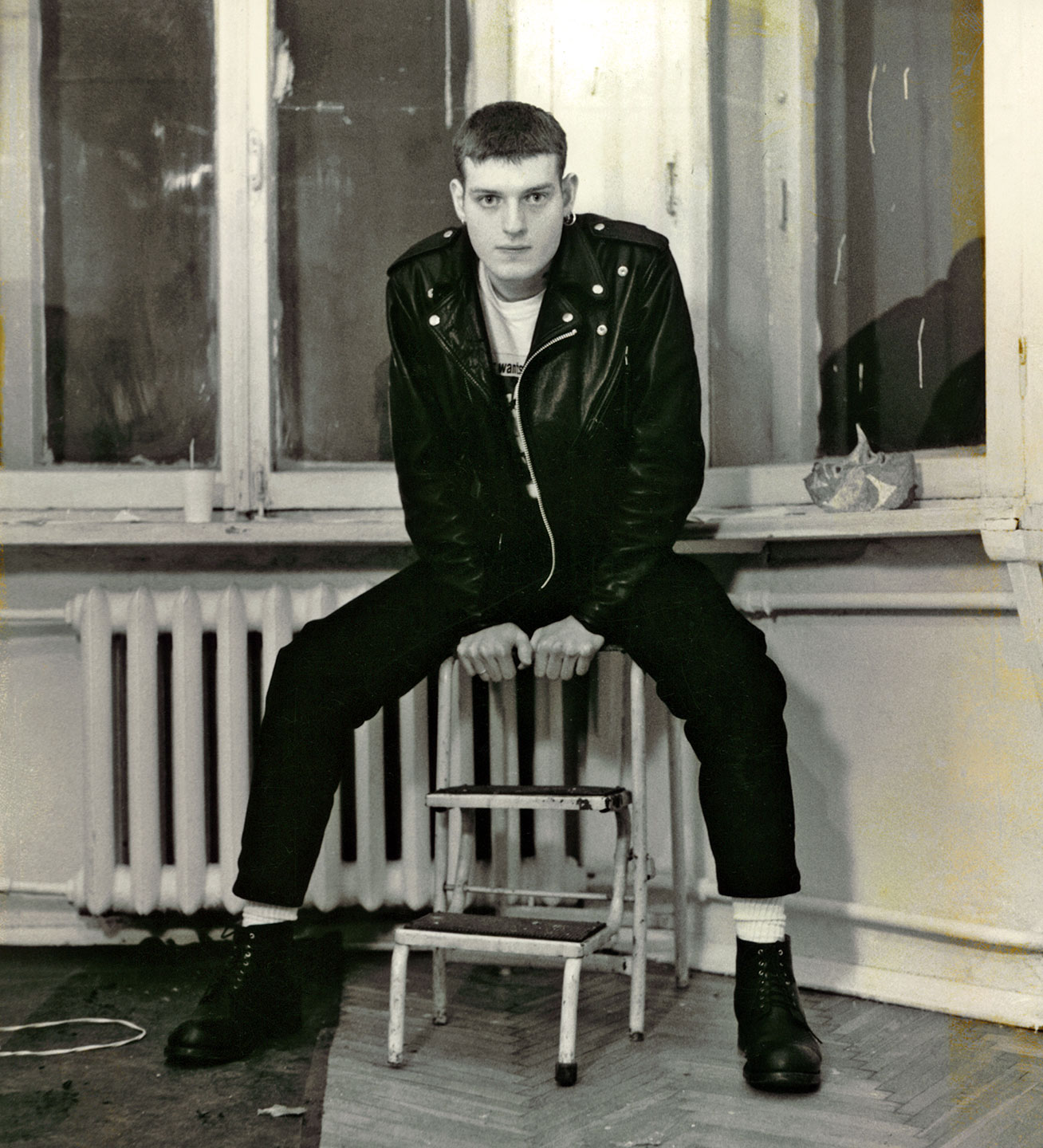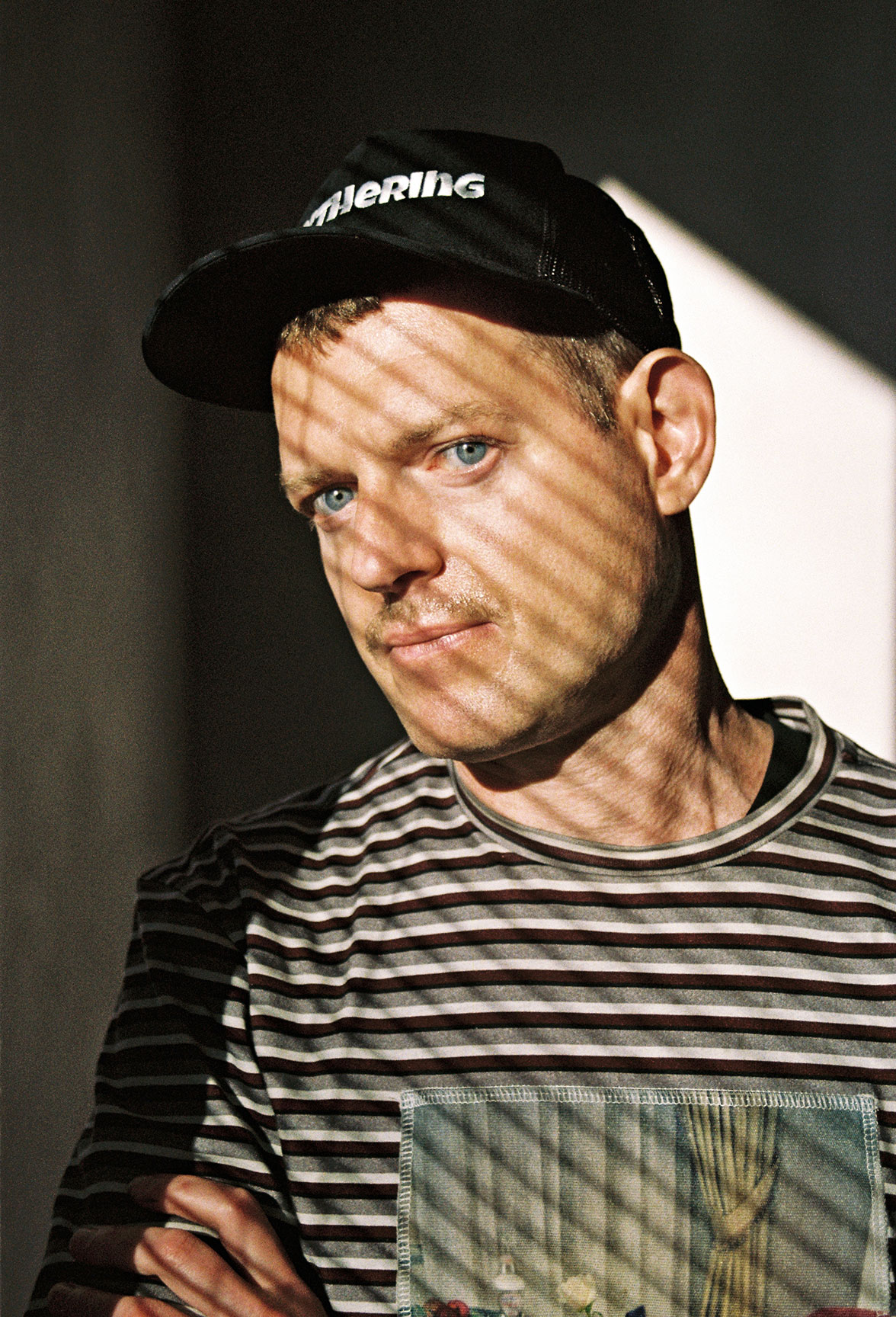Narrative Biography

Slava Mogutin on the eve of his exile, Moscow, 1995. Photo: Vasiliy Kudryavtsev
Slava Mogutin is a New York-based Russian-American multimedia artist and author exiled from Russia for his outspoken writing and activism. Informed by his bicultural dissident and refugee experience, Mogutin’s work examines the notions of displacement and identity, pride and shame, devotion and disaffection, love and hate.
Born Yaroslav Yurievich Mogutin (Ярослав Юрьевич Могутин) in the industrial city of Kemerovo, Siberia, he left his family and moved to Moscow at age 14. A third-generation writer and self-taught journalist, he soon began working as a reporter and editor for the first independent Russian newspapers, publishers, and radio stations, such as Echo of Moscow, The Moscow Times, The Moscow Guardian, Nezavisimaya Gazeta, Stolitsa, and Novy Vzglyad. He was hailed as one of the foremost voices of the post-Perestroika new journalism and the only openly gay personality in the Russian media.
By the age of 21, Mogutin had gained both critical acclaim and official condemnation and became the target of two highly publicized criminal cases, carrying a potential prison sentence of up to seven years. He was charged with “open and deliberate contempt for generally accepted moral norms,” “malicious hooliganism with exceptional cynicism and extreme insolence,” “inflaming social, national, and religious division,” “propaganda of brutal violence, psychic pathology, and sexual perversions.”
In 1994, Mogutin attempted to register officially the first same-sex marriage in Russia with his then-partner, American artist Robert Filippini. The attempt made headlines around the world, but only further fueled his persecution by the authorities. Forced to flee his country in 1995, Mogutin became the first Russian to be granted political asylum in the US on the grounds of homophobic persecution. His case for asylum was supported by Amnesty International, Human Rights Watch/Helsinki, Committee to Protect Journalists, Article 19, PEN International and PEN American Center, setting the precedent for many other gay and lesbian refugees from the former USSR.
Upon his arrival in New York, Mogutin shifted his focus to visual art and started using his nickname Slava—"glory" or "fame" in Russian—as his artist name. His photography and multimedia work have been exhibited internationally, including MoMA PS1 and Museum of Arts and Design in New York; Yerba Buena Center for the Arts in San Francisco; The Pacific Design Center in LA; Station Museum of Contemporary Art in Houston; Moscow Museum of Modern Art; Australian Centre for Photography in Sydney; Witte de With Center for Contemporary Art in Rotterdam; Overgaden Institute of Contemporary Art in Copenhagen; Estonian KUMU Art Museum in Tallinn; Museo de Arte Contemporáneo de Castilla y León (MUSAC) in Spain; The Haifa Museum of Art in Israel, and, most recently, in his first US museum solo show at iMOCA, Indianapolis Museum of Contemporary Art.
Mogutin's work was included in the program of the 1st Moscow Biennale of Contemporary Art (2005), 15th Tallinn Print Triennial (2008), 5th Thessaloniki Biennale of Contemporary Art and 56th La Biennale di Venezia, as part of Jaanus Samma's NSFW. A Chairman’s Tale at the Estonian Pavilion (2015). His photography has been published in a wide range of publications, including BUTT, Flash Art, Modern Painters, i-D, Dazed & Confused, Visionaire, L’Uomo Vogue, Stern, Libération, The Guardian, and The New York Times. He is a regular contributor to Gayletter, The Calvert Journal, Whitewall, Vice, Flaunt, The Stranger, and Document Journal.
Mogutin is the author of two critically acclaimed monographs of photography published in the US, Lost Boys and NYC Go-Go (powerHouse Books, Brooklyn, 2006/2008), and seven books of writings in Russian. In 2000, he was awarded the Andrei Bely Prize, one of the most prestigious literary awards in Russia. His poetry, fiction, essays, and interviews had appeared in numerous publications and anthologies in ten languages. He has translated into Russian selected writings of Allen Ginsberg, William S. Burroughs, and Dennis Cooper.
Mogutin has lectured extensively throughout the US, including NYU, Columbia University, Yale, Harvard, Harriman Institute, Grinnell College, Stevens Institute of Technology, Middlebury College, University of Kansas, Parsons The New School for Design, and School of Visual Arts. As an actor he appeared in Bruce LaBruce’s film Skin Flick (1999) and Laura Colella’s independent feature Stay Until Tomorrow (2004). His commercial credentials include still photography for the HBO series Looking (2013), film commission for Please Do Not Enter (2014), collaborations with Gosha Rubchinskiy and Lotta Volkova (2016), CV22-Rugby (2017), Helmut Lang (2019), NIHL and Marni (2020), RASSVET, Dover Street Market Paris and Comme des Garçons Berlin (2021), Guram Gvasalia and VTMNTS (2022), as well as commission portraits and fashion editorials.
In 2011, Mogutin was naturalized as a US citizen and legally changed his name to Slava. He continues to write in Russian and English and remains a vocal critic of Vladimir Putin and his recent anti-gay policies. In 2014, Mogutin released his first collection of writings in English, Food Chain (ITNA Press, Brooklyn). His latest photography monograph, Bros & Brosephines, was published in 2017 by powerHouse Books, followed by the illustrated Straight to Hell edition, Pictures & Words (2018). He is currently at work on a bilingual collection of poetry, a book of essays and interviews covering over two decades of his journalistic work, Gay in the Gulag, and two books based on his analog and Polaroid photography.
Slava Mogutin by Joseph Wolfgang Ohlert, Berlin 2022
